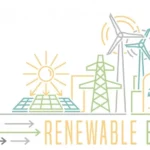India’s Energy Transition At risk Due To Voilence

Despite the Intergovernmental Panel on Climate Change’s directive to phase out all coal production by 2050 to avert dangerous global warming, India is navigating a fossil-fueled transition, with coal powering 70 per cent of its electricity-generating capacity
India’s debate over coal has been clouded by violent incidents, which highlight the difficult balancing act the nation must perform between its strong reliance on coal for economic stability and its goal of attaining net-zero carbon emissions by 2070. Examining this paradox closely, Mukul Kumar, Assistant Professor of Urban Planning and Public Policy at the University of California, highlights the sometimes disregarded link between state-sanctioned violence, land expropriation, and their disproportionate effects on frontline communities and Indigenous people. His work, published in Climate and Development, examines “violent transitions” that are associated with the growth of low-carbon and fossil fuel energy infrastructure, when land acquisition is made possible by state-sanctioned violence. Kumar’s work, which examines 121 coal and hydropower projects, highlights the urgent need to balance social justice and environmental goals while navigating India’s complicated energy landscape, which is characterised by a reliance on coal and concurrent plans for an unprecedented expansion of low-carbon infrastructure.























































































































































































































































































































































































































































































































































































































































































































































































































































